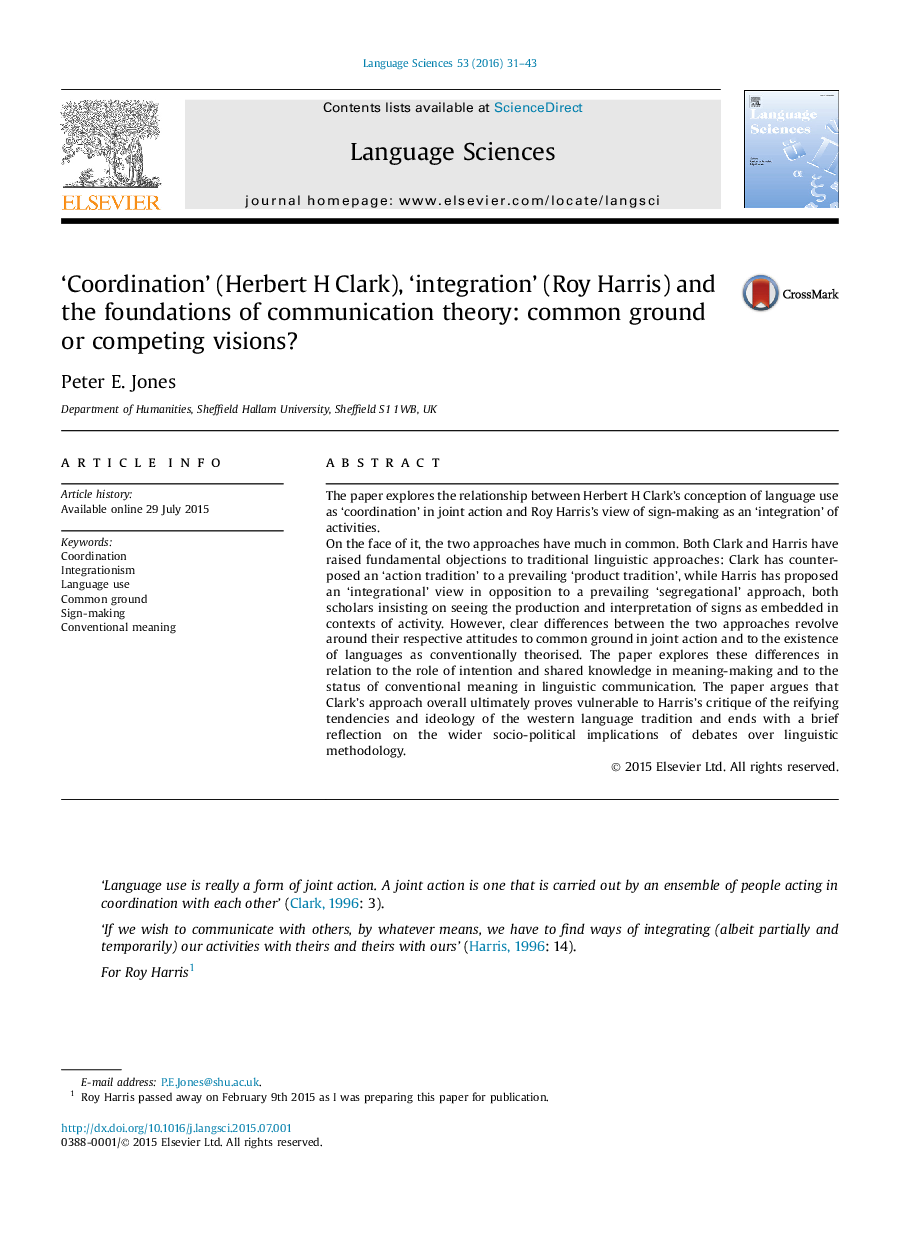| Article ID | Journal | Published Year | Pages | File Type |
|---|---|---|---|---|
| 10520099 | Language Sciences | 2016 | 13 Pages |
Abstract
On the face of it, the two approaches have much in common. Both Clark and Harris have raised fundamental objections to traditional linguistic approaches: Clark has counterposed an 'action tradition' to a prevailing 'product tradition', while Harris has proposed an 'integrational' view in opposition to a prevailing 'segregational' approach, both scholars insisting on seeing the production and interpretation of signs as embedded in contexts of activity. However, clear differences between the two approaches revolve around their respective attitudes to common ground in joint action and to the existence of languages as conventionally theorised. The paper explores these differences in relation to the role of intention and shared knowledge in meaning-making and to the status of conventional meaning in linguistic communication. The paper argues that Clark's approach overall ultimately proves vulnerable to Harris's critique of the reifying tendencies and ideology of the western language tradition and ends with a brief reflection on the wider socio-political implications of debates over linguistic methodology.
Related Topics
Social Sciences and Humanities
Arts and Humanities
Language and Linguistics
Authors
Peter E. Jones,
